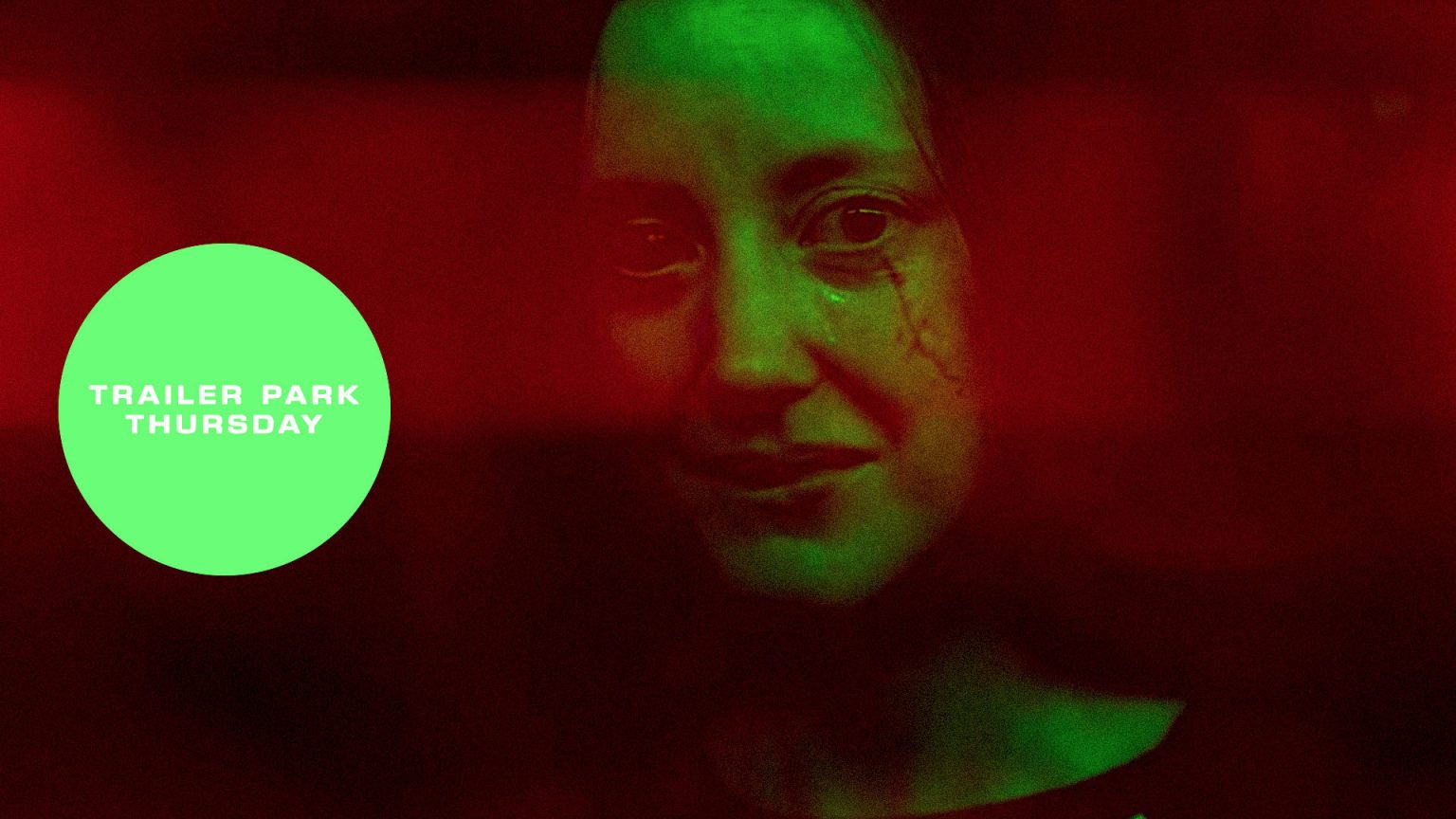This week, we’re taking a look at three distinct movies that are each named after one of their main characters. While aesthetically, they represent three very separate points of view, from three directors who have ambitious things to say in their own particular way, all three center around the push-pull of a triangulated conflict, with their titular characters serving as the “rope” in some form of symbolic tug-of-war. With that, let’s get to know a little bit about Zoe, Mandy, and Madeline:
From Teknolust and Her to last year’s Marjorie Prime, there’s no shortage of movies that explore love in late-stage, technologically accelerated capitalism. Zoe, likewise, is set in a heavily Instagram-filtered near-future. This trailer sets the film up like an earnest and tender workplace love triangle between Ewan McGregor, who “chose life, chose a job, chose a career,” his coworker, Blue is the Warmest Color’s Léa Seydoux, and their latest professional project, a handsome AI who also, according to him, is like, a really great listener and would be, like, a way better boyfriend than your boyfriend could ever be. That’s a strong stance, bro.
What this trailer fails to mention is that (spoiler alert, sort of) Seydoux is also, herself, an AI, and in light of that, McGregor’s benevolent mansplaining of human relational dynamics makes more sense—after all, “born sexy yesterday girl” always needs a teacher. Also, missing from the trailer? Christina Aguilera, who we were just wondering about. She plays a synthetic sex worker named Jewels because of course, she does. Gosh, let’s hope she sings! In all seriousness, future-tripping films like this are starting to feel increasing like wishful thinking in light of many things that promise to get worse before they get better, but then again, if actual reality is likely to be a lot more cyberpunk and dystopian than movies like Zoe would lead us to believe, then maybe we should just be grateful for the sweet escape.
Speaking of which: If you’re at all familiar with the highly stylized (and totally bananas) neo-cult sci-fi mind-bender Beyond the Black Rainbow, you already understand that director Panos Cosmatos has a very particular vision, one that blends the most sinister aesthetics of both science and spirituality with a heaping serving of VHS-era nostalgia. Now, he’s got a budget, and one heck of a leading man—none other than Nicolas Cage, who by the looks of things is NOT holding back.
We could talk about Cage until the cows come home, but hey, how about that Andrea Riseborough? We loved her as Laura in Birdman, and here in the titular role (as Cage’s girlfriend) she’s giving us a hauntingly hollow, thousand-yard stare with some serious Shelley Duvall vibes…and more than a subtle whiff of classic, Carrie-era Sissy Spacek. By all accounts, Mandy is a dark, satisfying throwback in the same general vein as Stranger Things, except way, way more experimental, over-the-top, and adult-themed—think less Steven Spielberg, the more John Carpenter. We can’t wait for mid-September when it will finally be in theaters and we can connect the dots between the mutant bikers, the fire-forged battle-ax, the tiger, and the chainsaw “sword fight” pictured on the glorious, paperback paradise-Esque work of art that is its movie poster.
No less an iconoclast than Cosmatos, director Josephine Decker has been responsible for some of the most audacious and compelling movies of the aughts’ second decade. She comes from a conceptual performance art background, and in her newest film, the dizzying and somewhat destabilizing Madeline’s Madeline, she’s really letting it show.
Miranda July (shown here in full bisexual lighting) plays a single mother whose daughter (newcomer Helena Howard) is struggling with an unnamed mental illness but also happens to be some kind of avant-garde theater genius. House of Cards Molly Parker plays Evangeline, the theater company’s far-out director. As the actors start work on a new performance piece, the tensions between Regina, Madeline, and Evangeline (as well as the tensions between art and life) begin to intensify. Decker’s self-referential riddle, which is as much about the act of storytelling as it is about coming-of-age or identity or anything else, was built from many, many sessions of improvisation, giving it a lyrical quality that may have you stumbling out of the theater in a rough re-entry to reality. Fandor was lucky enough to interview her about the project back in February, and it is, quite simply, a must-read.
Watch Now: If you can’t wait a month for Madeline’s Madeline’s theatrical release next month, you can soothe your impatience with Thou Wast Mild and Lovely, Butter on the Latch, Me the Terrible, and Bi the Way, all by Madeline’s Madeline director Josephine Decker. And don’t miss The Animal Project, also on Fandor, which explores similar themes (and also features actors in animal costumes).




